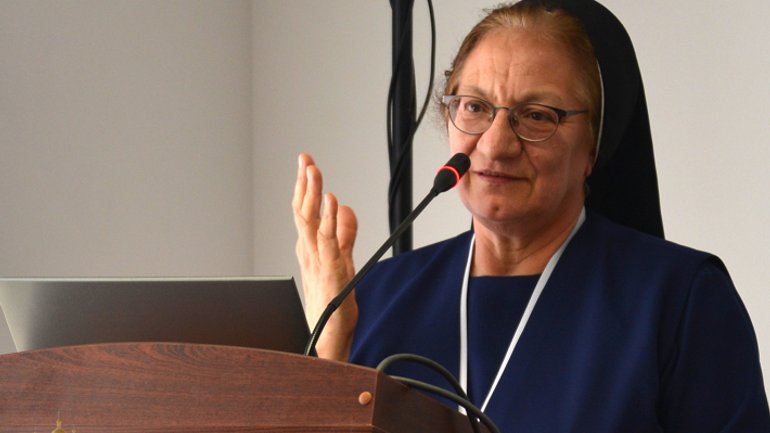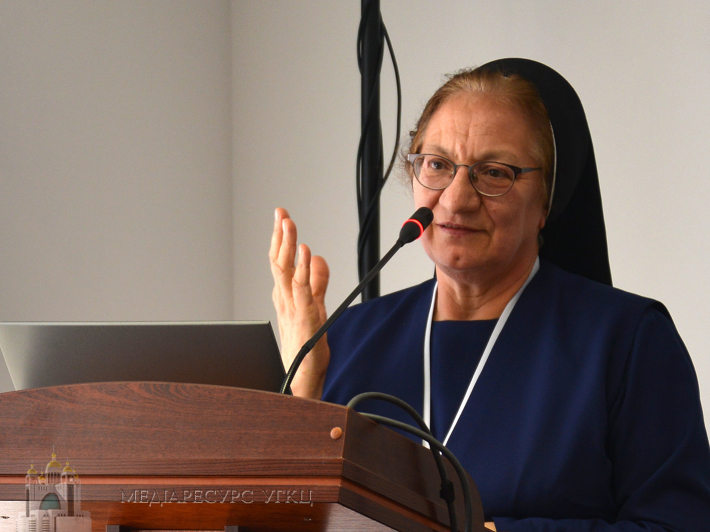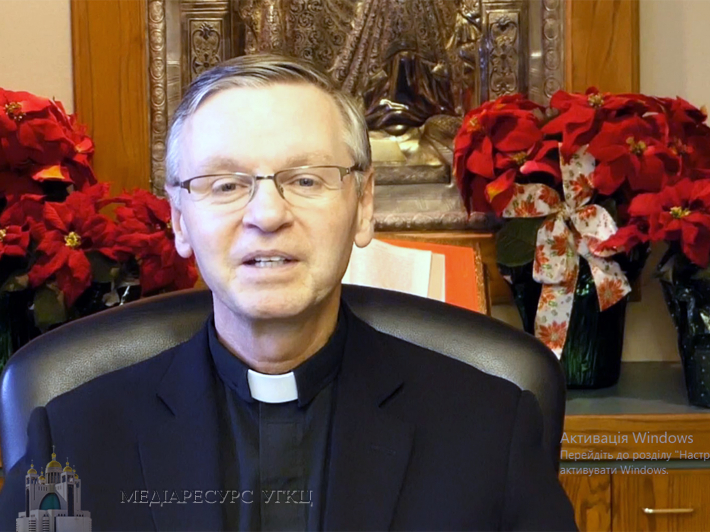Real catechization situation presented at UGCC Synod

The Ukrainian Greek Catholic Church has made some progress at the local level regarding catechetical ministry. However, in spite of certain achievements, there are now many challenges that need to be addressed. So if everyone pays more attention to catechesis and cooperates with each other the situation will improve considerably in the area of religious education and education in faith.

Dr. Luisa Tsupa, Sisters Servants of Mary Immaculate, said it in the report “Catechism in the UGCC: state, challenges and ways to overcome them” on Tuesday, September 4, during the second session of the Synod of Bishops of the UGCC, taking place these days in Lviv-Bryukhovychi. This day the Synod is devoted to the consideration of the main theme: “God's Word and Catechism.”
According to her, now one can state with certainty that many good initiatives, sacrifices, and work on the local level are initiated. However, despite success and achievements, we face our own difficulties and problems in this field.
The speaker tried to outline the most common widespread challenges. In the opinion of Sister Luisa, it is now not quite easy to cooperate with dioceses when they do not appoint a person responsible for the catechetical ministry. After all, the personnel training for catechetical ministry is no less important for improving the work of the dioceses.
“Unfortunately, in our Church there are still few priests who are into the matter of conveying their faith, Christian teaching and education, providing systematic appropriate software for such a process. We must admit that often the motivation and enthusiasm of priests to catechetical affairs are very weak, they do not feel like the first catechists in parishes, and do not pay enough attention to the development of catechetical ministry. This is indicated as a challenge in almost all reports of diocesan catechetical commissions,” the speaker believes.
In addition, sister Luisa also referred to the lack of properly trained catechist laity and their proper supervision, since this is a particularly urgent matter in Europe, Canada, the United States, where so many of our faithful immigrate for work and for permanent residence.
She believes that the catechism of adults in parishes has so far been neglected. Moreover, catechization (i.e., Christian education and education) is largely confined to preparation for the first Holy Confession.
Thus sister Louise tried to summarize suggestions for improving catechization. She is convinced that, first of all, it is necessary to involve priests more effectively as the first catechists in the parish. She adds that it is expedient to practice laity catechists, emphasize the responsibility of parents and their involvement in catechesis, conduct catechesis for adults, and also engage youth.
“I sincerely hope that the Holy Synod, in its reflections, prayers and sincere dialogue, will offer us some direction for the improvement and more effective work in the religious education and upbringing in faith, formulate appropriate decisions and mechanisms for their implementation in order to improve catechetical ministry,” summed up Sister Dr. Luisa Tsupa, Sisters Servants of Mary Immaculate.
Bishop David (Motyuk), the Ruling Bishop of the Diocese of Edmonton, in his report “The Word of God and Catechism” presented the Canadian experience of catechesis.

The bishop advised to change the focus from child catechization to adult evangelization and catechesis, to devote time, effort and money to infrastructure development for adult catechization and evangelization.
It was reported by the Department of Information of the UGCC.









